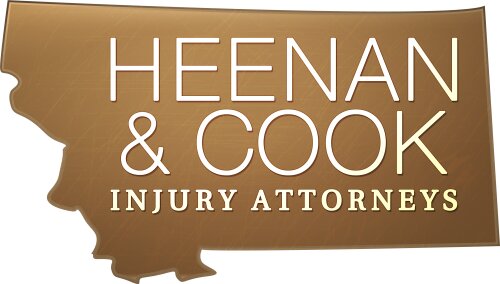Best Brain Injury Lawyers in United States
Share your needs with us, get contacted by law firms.
Free. Takes 2 min.
Or refine your search by selecting a city:
List of the best lawyers in United States
About Brain Injury Law in United States
Brain injury law in the United States broadly encompasses legal principles and regulations related to traumatic brain injuries (TBI) and other forms of brain damage. These injuries can arise from a variety of incidents, including car accidents, falls, sports incidents, and medical malpractice. The law seeks to provide mechanisms for injured individuals to seek compensation for medical expenses, lost wages, rehabilitation, and pain and suffering. Given the complexity of the brain and the potential for long-term effects of brain injuries, legal cases of this nature require thorough medical documentation and expert testimonies to establish liability and damages.
Why You May Need a Lawyer
Engaging a lawyer specializing in brain injury cases can be essential in several situations:
- Severe Injury Cases: Comprehensive legal representation is crucial if the injury leads to significant cognitive, physical, or emotional changes, as the case could involve substantial compensation claims.
- Disputed Liability: If the cause of the injury is contested, legal expertise is necessary to gather evidence, negotiate with insurance companies, and, if necessary, take the case to court.
- Insurance Denials: Insurers may deny or undervalue claims; legal assistance can help appeal these decisions and ensure fair compensation.
- Product Liability: If the injury is linked to product defects, legal intervention is necessary to address the complexities of product liability law.
- Workplace Injuries: Complex worker's compensation laws often require legal interpretation to ensure adequate recompense for workplace brain injuries.
Local Laws Overview
Key aspects of laws relevant to brain injuries in the United States include:
- Negligence Laws: Most brain injury claims are based on negligence, requiring proof that another party failed to act with reasonable care, resulting in injury.
- Statute of Limitations: This varies by state but generally ranges from one to six years for personal injury claims. Timeliness is crucial as filing outside these timeframes usually results in dismissal.
- Comparative Fault Rules: Some states follow comparative fault rules that reduce compensation based on the injured party’s degree of fault.
- No-Fault Insurance Laws: In no-fault states, individuals must meet serious injury thresholds before pursuing a claim for pain and suffering against responsible parties.
- Medical Malpractice Laws: For injuries resulting from healthcare negligence, unique laws and pre-suit requirements, like expert affidavits, apply.
Frequently Asked Questions
What are the common causes of brain injuries?
Common causes include motor vehicle accidents, falls, sports injuries, assault, and medical malpractice.
How is liability determined in brain injury cases?
Liability is generally established by proving that another party's negligence or intentional act caused the injury.
What compensation can I receive for a brain injury?
Compensation may include medical expenses, rehabilitation costs, lost wages, loss of earning capacity, and pain and suffering.
Can brain injury symptoms appear later?
Yes, symptoms can manifest hours to weeks after the injury, which complicates legal and medical evaluations.
Is it necessary to hire a brain injury lawyer?
Given the complexity of these cases, a specialized lawyer can navigate legal intricacies and achieve fair compensation.
What should I do immediately after a brain injury?
Seek medical attention, document everything related to the injury, and contact a lawyer specializing in brain injuries.
How long do brain injury cases take to resolve?
Cases can take months to several years, depending on complexity, liability disputes, and negotiation dynamics.
Are settlements taxable?
Generally, settlements for physical injuries are not taxable, but portions covering emotional distress or lost wages might be.
What role do expert witnesses play?
Experts provide crucial testimony regarding the injury's impact and future prognosis, which supports the plaintiff's case.
How does comparative negligence affect my case?
If you are partly at fault, your compensation may be reduced by your percentage of fault, depending on state laws.
Additional Resources
For more information, consider contacting organizations such as the Brain Injury Association of America, the Centers for Disease Control and Prevention (CDC) Traumatic Brain Injury program, or your state’s Department of Health. Legal aid organizations and state bar associations can also provide assistance and resources.
Next Steps
If you require legal assistance in a brain injury case, take the following steps:
- Consult a Specialist: Seek out attorneys who specialize in brain injury law for an initial consultation.
- Document Everything: Collect medical records, police reports, witness statements, and any other relevant documentation.
- Understand Your Rights: Review your rights under local laws, especially regarding compensation and filing deadlines.
- Legal Representation: Choose a competent lawyer to represent your case and guide you through the legal process.
Lawzana helps you find the best lawyers and law firms in United States through a curated and pre-screened list of qualified legal professionals. Our platform offers rankings and detailed profiles of attorneys and law firms, allowing you to compare based on practice areas, including Brain Injury, experience, and client feedback.
Each profile includes a description of the firm's areas of practice, client reviews, team members and partners, year of establishment, spoken languages, office locations, contact information, social media presence, and any published articles or resources. Most firms on our platform speak English and are experienced in both local and international legal matters.
Get a quote from top-rated law firms in United States — quickly, securely, and without unnecessary hassle.
Disclaimer:
The information provided on this page is for general informational purposes only and does not constitute legal advice. While we strive to ensure the accuracy and relevance of the content, legal information may change over time, and interpretations of the law can vary. You should always consult with a qualified legal professional for advice specific to your situation.
We disclaim all liability for actions taken or not taken based on the content of this page. If you believe any information is incorrect or outdated, please contact us, and we will review and update it where appropriate.
Browse brain injury law firms by state in United States
Refine your search by selecting a state.















